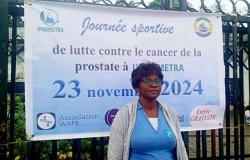When it comes to conditions that cause shingles, asthma is not necessarily the first disease that comes to mind. However, due to the use of corticosteroid therapy (oral or inhaled), it seems logical to think that asthma could, in the same way as diabetes, COPD or chronic kidney failure, promote the occurrence of shingles. .
According to the concept of greater fragility of asthmatics to viral infections and due to the use in their treatment of corticosteroid therapy which contributes to reducing immunity, the general burden of shingles and its secondary complications in this area deserves to be addressed. ‘be evaluated. To fill this gap, KJ Mortimer et al. established a systematic review of the literature based on 19 studies, 6 of which were sufficiently comparable to allow a meta-analysis.
1 adult asthmatic has 23-36% more risk of contracting shingles than a non-asthmatic
In asthmatics aged at least 18 years, the pooled incidence (95% confidence interval) of herpes zoster is 5.71 (4.68 – 6.96) per 1000 person-years. In subjects under 60 years of age, this value is 4.20 (3.09 – 5.70) per 1000 person-years compared to 10.33 (9.17 – 11.64) in subjects aged > 60 years, respectively (p
In total, an asthmatic aged at least 18 years old has a 23 to 36% greater risk of contracting shingles than a non-asthmatic. Concerning ophthalmic shingles, the data are limited to one study evaluating the risk of occurrence of this location in adult asthmatics compared to a control group. Ophthalmic shingles is found there more often than in the general population: adjusted risk ratio (ARR) of 1.90 (1.10 – 3.20).
Oral corticosteroid therapy increases the risk of shingles in asthmatic patients
An essential element in the analysis of asthma – shingles relationships is the influence of inhaled or non-inhaled corticosteroid treatment on the occurrence of the infection. The authors indicate that it is mainly oral corticosteroid therapy (OC) which increases the risk of shingles. The ARR for herpes zoster was higher in asthmatics treated with OC than those not taking it: value of 1.33 (1.25 – 1.42) versus 1.17 (1.12 – 1.21), respectively .
Concerning inhaled corticosteroid therapy, monotherapy has no significant risk and it is the association of the molecule with a long-acting β2 mimetic which carries a risk: ARR of 1.15 (1. 07 – 1.25).
For other treatments (notably biotherapy), the authors do not provide definitive information due to the low number of studies. Finally, the authors found that in asthmatics, shingles causes more complications such as post-zooster pain: ARR of 1.21 (1.06 – 1.37).
This meta-analysis establishes more precisely the hitherto undemonstrated relationships between asthma and shingles, namely: a higher risk of infection in adult asthmatics which increases with age and association between taking CO on the occurrence of shingles. Gray areas persist, which future studies would deserve to explore, in particular: the links between asthma and ophthalmic shingles, the impact of biotherapies on the risk of shingles and the data in institutionalized elderly subjects.






